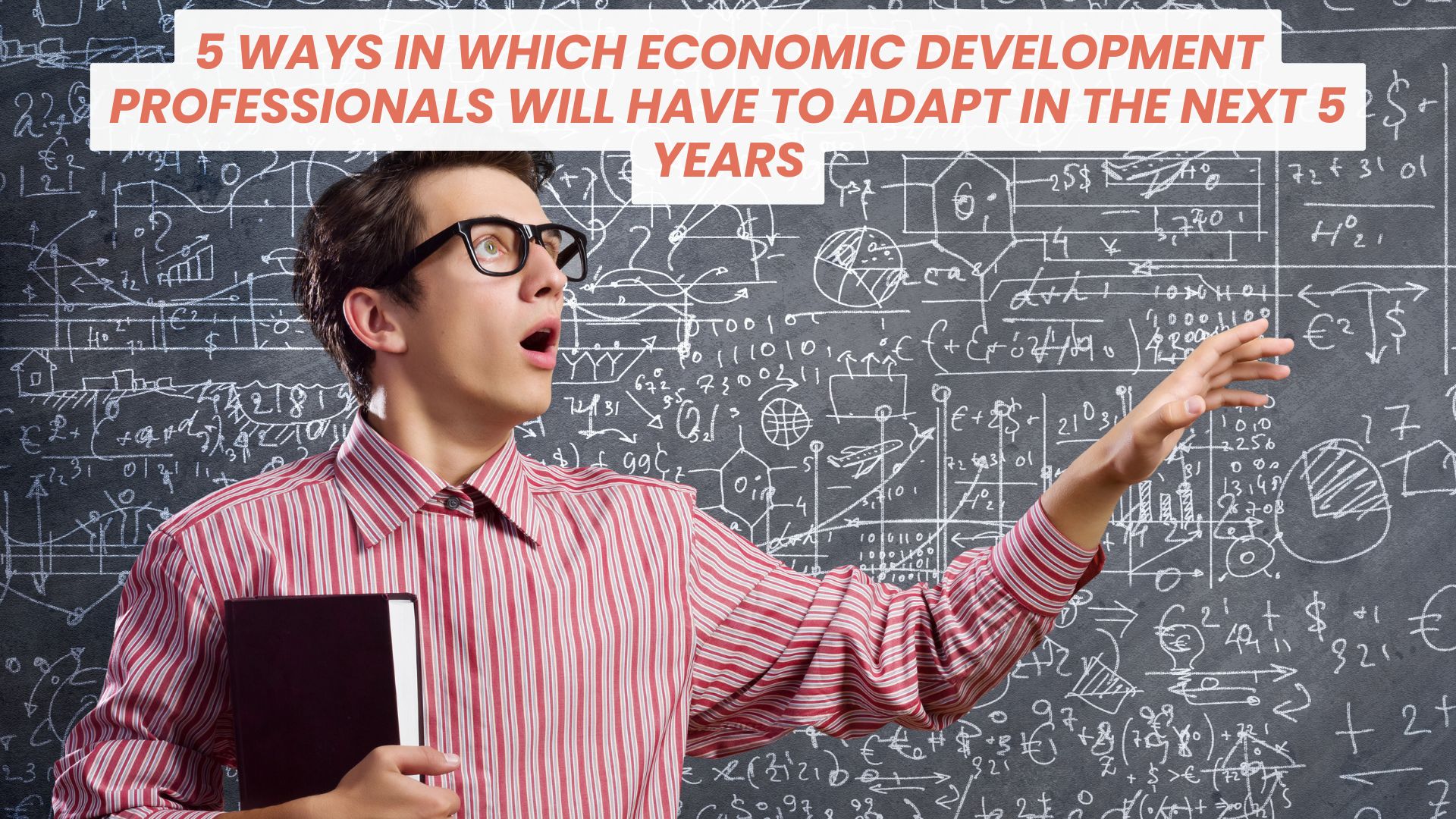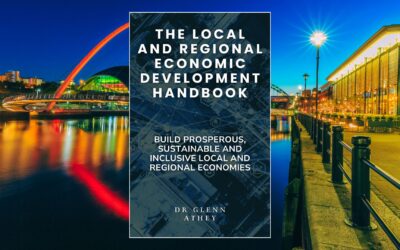As the global economic landscape is reshaped by rapid technological advancements, a heightened focus on sustainability and equity, and the increasing frequency of economic shocks, economic development professionals must significantly adapt their skills and knowledge to remain effective. Here are the top five ways they will need to evolve in the future:
1. Embrace Data Science and Artificial Intelligence
The era of relying solely on traditional economic indicators is over. The future of economic development lies in the ability to harness the power of big data and artificial intelligence (AI). Professionals will need to move beyond basic data analysis and develop skills in:
- Predictive Analytics: Utilising AI-powered tools to forecast economic trends, identify high-growth sectors, and pinpoint potential investment opportunities with greater accuracy.
- Data-Driven Storytelling: Translating complex data into compelling narratives that can inform strategic decisions and communicate a region’s value proposition to stakeholders and potential investors.
- Technological Literacy: Understanding the fundamentals of AI, machine learning, and other emerging technologies to effectively integrate them into economic development strategies, from identifying suitable business prospects to streamlining administrative processes.
2. Champion Sustainable and Inclusive Development
There is a growing global consensus that economic growth cannot come at the expense of environmental health and social equity. Economic development professionals must become experts in:
- Green Economy Principles: Understanding renewable energy, circular economy models, and sustainable agriculture to attract and support businesses in these burgeoning sectors.
- Social Equity and Inclusion: Designing and implementing strategies that address economic disparities, create opportunities for marginalized communities, and ensure that the benefits of economic growth are broadly shared.
- Impact Measurement: Moving beyond traditional metrics like job creation to measure the environmental and social impact of economic development projects.
3. Cultivate Resilience and Adaptability
In an age of increasing global uncertainty, from pandemics to geopolitical shifts, the ability to build resilient local economies is paramount. This requires professionals to develop skills in:
- Economic Shockproofing: Identifying vulnerabilities in the local economy and developing strategies to mitigate the impact of future disruptions. This includes diversifying the economic base and strengthening local supply chains.
- Agile Strategy Development: Moving away from rigid long-term plans to more flexible and adaptive strategies that can be quickly adjusted in response to changing circumstances.
- Crisis Management and Communication: Effectively guiding communities and businesses through economic downturns and communicating a clear path to recovery.
4. Master the Art of Digital Communication and Marketing
In a competitive global environment, the ability to effectively market a region’s assets is more important than ever. Economic development professionals will need to become adept at:
- Digital Place Branding: Creating a strong and authentic online presence that showcases a region’s unique strengths and attracts talent, tourism, and investment.
- Targeted Lead Generation: Utilising digital platforms and data analytics to identify and engage with potential investors and businesses that are a good fit for the local economy.
- Content Creation and Social Media Engagement: Developing compelling content, from videos to blog posts, that highlights a region’s success stories and engages with a global audience.
5. Transition from Generalist to Specialist
The increasing complexity of the global economy will require economic development professionals to move beyond a “one-size-fits-all” approach and develop deep expertise in specific areas. This may include:
- Sector-Specific Knowledge: Becoming an expert in high-growth industries like life sciences, fintech, or advanced manufacturing to better support and attract businesses in those fields.
- Specialised Financial Acumen: Understanding complex financial instruments, such as venture capital and impact investing, to facilitate investment in local businesses.
- Workforce Development Expertise: Developing a deep understanding of future worklabourforce needs and creating effective strategies to upskill and reskill the local labor force.
By proactively developing these skills and knowledge areas, economic development professionals can effectively navigate the challenges and opportunities of the future and build stronger, more resilient, and more equitable communities.







